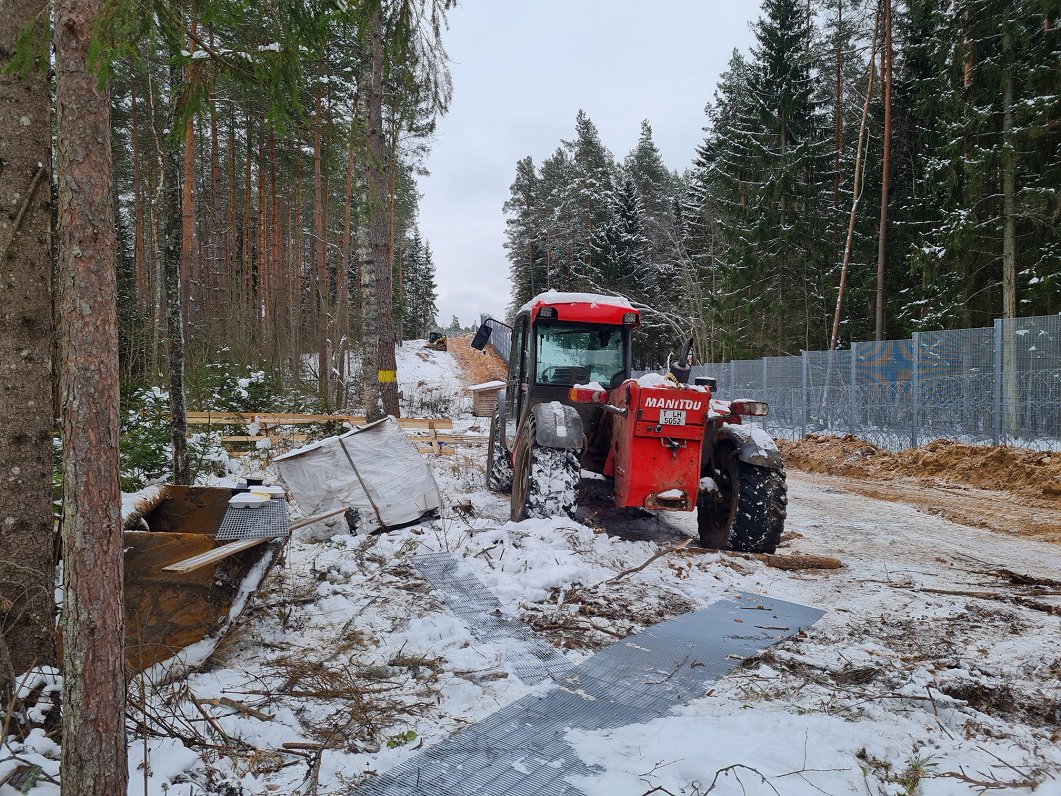The state of emergency in the border area of Belarus has been extended multiple times in Latvia, first introduced in August 2021, and currently in force until February 10. In the last few weeks an increase of immigration attempts has been observed again, said Dimitrijs Trofimovs, Deputy State Secretary of the Ministry of Interior (IEM).
"This unprecedented attack organized by the Lukashenko regime on Latvia's territory has been an act organized in Belarus together with the largest neighboring country. [..] It should be recalled that in the past, more than 100 people per day were attempting to cross the border, resulting in an exhausted resource for home affairs services and the centers for the detention of migrants being crowded," Trofimovs said.
The State Border Guard has observed a significant involvement of Belarusian services in organizing the flow of illegal migrants. In the vicinity of the border on the Belarusian side, there was an unaccustomed armament of border guards, even sniper guns and machine guns. 23 criminal proceedings have been initiated regarding the illegal crossing of the border and also against several organizers of the migrant movement, the Chief of the State Border Guard, Guntis Pujāts, said.
"We observe that there are greeters on Latvia's side, representatives of different nations. The last detained was a Moldavian man, before – both Belarusian and Ukrainian nationals. We have detained six such carriers. One criminal proceeding is that there was an organized transfer over the border. Here is the link between Belarus and the regime of the larger neighboring country and organized crime. Just like in the Soviet times when KGB cooperated with organized crime," Pujāts said.
The Border Guard is counting on a flow of Iranian migrants toward Latvia, Lithuania, and Poland, exacerbated by the protests in Iran and its cooperation with Russia. The performance of job tasks at the border guard might be hampered by there being 16% free vacancies in the service. The issue of building a fence on the border between Latvia and Belarus is also relevant: up to now, 22 kilometers of a total of 173 kilometers have been built. The works will be carried out at the priority stage of 63 kilometers until the spring of the following year, but the project will be completed next year.
At the same time, on the border with Russia, the border fence has been constructed at 230 kilometers, the permanent fence extends to approximately 95 kilometers, and the construction of a fence will continue for a further 53.6 kilometers.




























